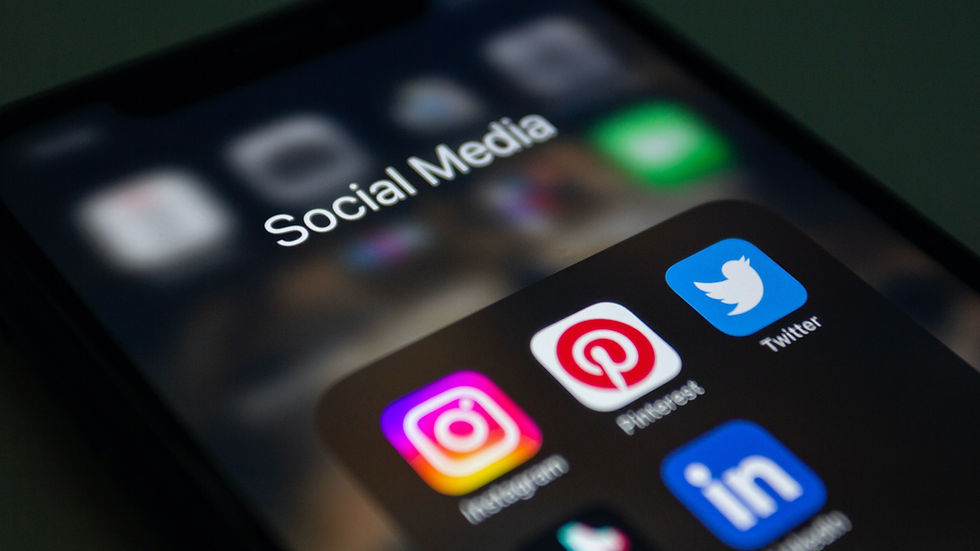Dubai's Doomscrolling Crisis: Should you be worried?
- Staff Writer
- Oct 8, 2025
- 3 min read
Dubai, with its reputation as a global tech hub and digital innovation leader, faces an increasingly pressing concern that mirrors worldwide trends: doomscrolling. This modern phenomenon, characterized by excessive consumption of negative or distressing content on social media platforms, has become a significant issue affecting the mental health and wellbeing of residents across the UAE.

The Scale of the Problem
Recent research reveals that the UAE has virtually 100% social media penetration, with residents spending an average of 2 hours and 58 minutes daily on social platforms. More alarmingly, studies show that UAE students spend around three hours daily on these platforms, with 69.7% using social media for five hours or more daily. The Middle East and North Africa region boasts some of the highest per capita adoption rates globally, with users maintaining an average of 8.4 social media accounts.
This extensive usage creates fertile ground for doomscrolling behaviors. The phenomenon has become so prevalent that 46% of millennials and 53% of Gen Z regularly engage in doomscrolling, which research links to a 29% drop in life satisfaction and significantly lower mental wellbeing. In the UAE specifically, 74% of young Arabs report struggling to disconnect from social media, while 61% agree that social media addiction negatively impacts their mental health.
Impact on Mental Health
The consequences of excessive social media consumption in Dubai are particularly evident among younger demographics. Children spending around three hours daily on social platforms experience increased anxiety, attention difficulties, academic struggles, and in some cases, speech delays. The constant stimulation from likes, shares, and comments activates the brain's reward center, creating sensations similar to gambling or substance use.
UAE mental health statistics paint a concerning picture, with the 2024 Mental State of the World Report revealing significant generational disparities. While adults over 55 showed excellent mental health scores (112.5 MHQ), younger adults aged 18-34 scored much lower (44.4 MHQ), with 36.9% experiencing distress compared to only 9% among seniors. This four-fold generational gap highlights how digital natives are disproportionately affected by social media-related mental health challenges.

Dubai's Response to the Crisis
Recognizing the severity of this issue, Dubai has emerged as a pioneer in addressing doomscrolling and digital wellness challenges. The UAE Council for Digital Wellbeing, established in 2020, aims to ensure citizens' digital wellbeing and maintain a balance between digital and real life. The initiative includes a helpline (80091) providing professional advice on digital world challenges.
A groundbreaking development is the launch of SureSpace, a Dubai-based social media app specifically designed to combat doomscrolling. This platform promises algorithm-free feeds, verified users only, and a safe space that combines personal and professional networking without the manipulative engagement tactics of traditional social media. The app launched in September 2025, positioning Dubai at the forefront of the digital wellness revolution.
Healthcare institutions are also stepping up. Emirates Health Services provides mental health support through digital channels, including a toll-free helpline (8008877) and various online counseling services. The German Neuroscience Centre in Dubai Healthcare City offers specific support groups for depression and anxiety, helping tackle the stigma around mental health issues.
Looking Forward
Dubai's approach to addressing doomscrolling reflects its broader commitment to digital innovation while prioritizing citizen wellbeing. The launch of initiatives like SureSpace demonstrates how the emirate is not just identifying problems but actively creating solutions. As Dubai continues positioning itself as a global digital city, balancing technological advancement with mental health considerations becomes increasingly crucial.
The challenge now lies in widespread adoption of digital wellness practices and continued investment in mental health support systems. With proper intervention and awareness, Dubai can transform from a city where doomscrolling is prevalent to one that leads the world in healthy digital consumption habits.

Comments